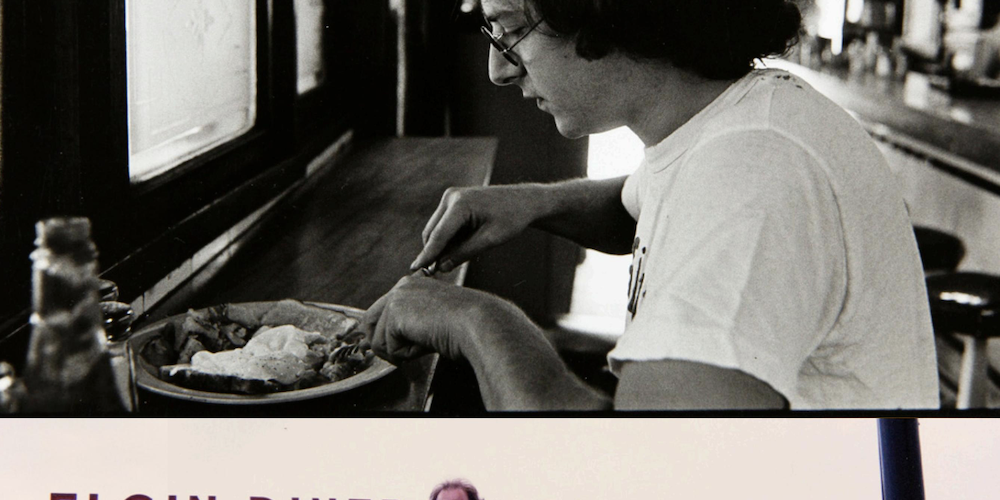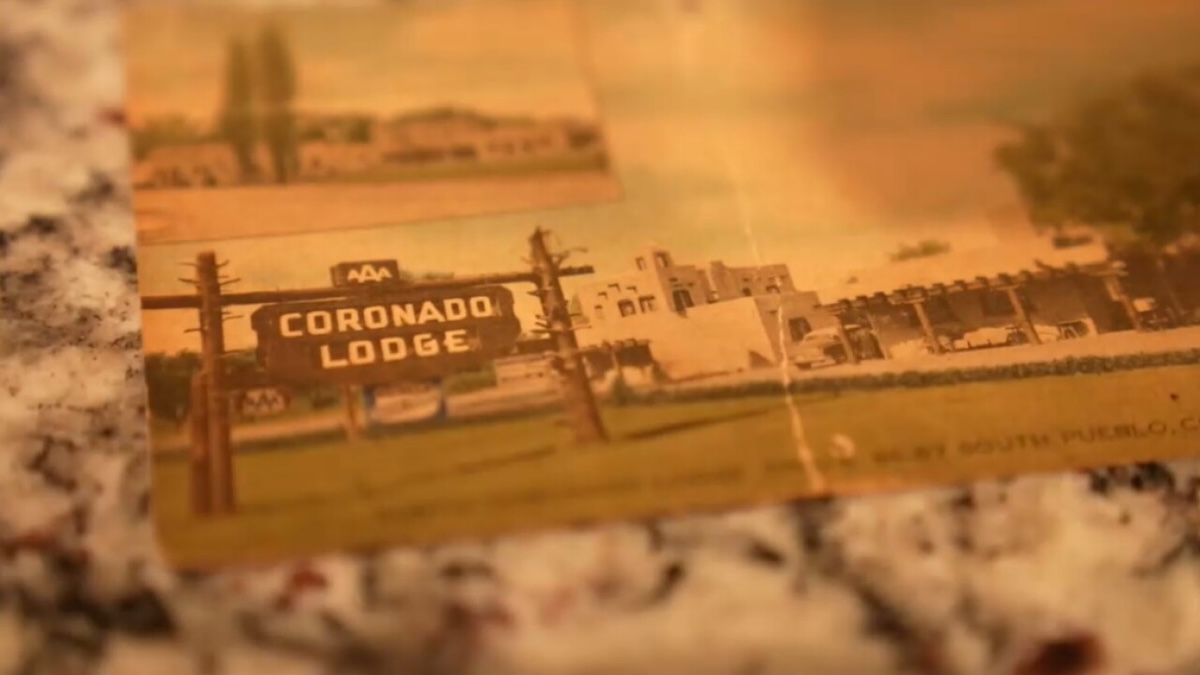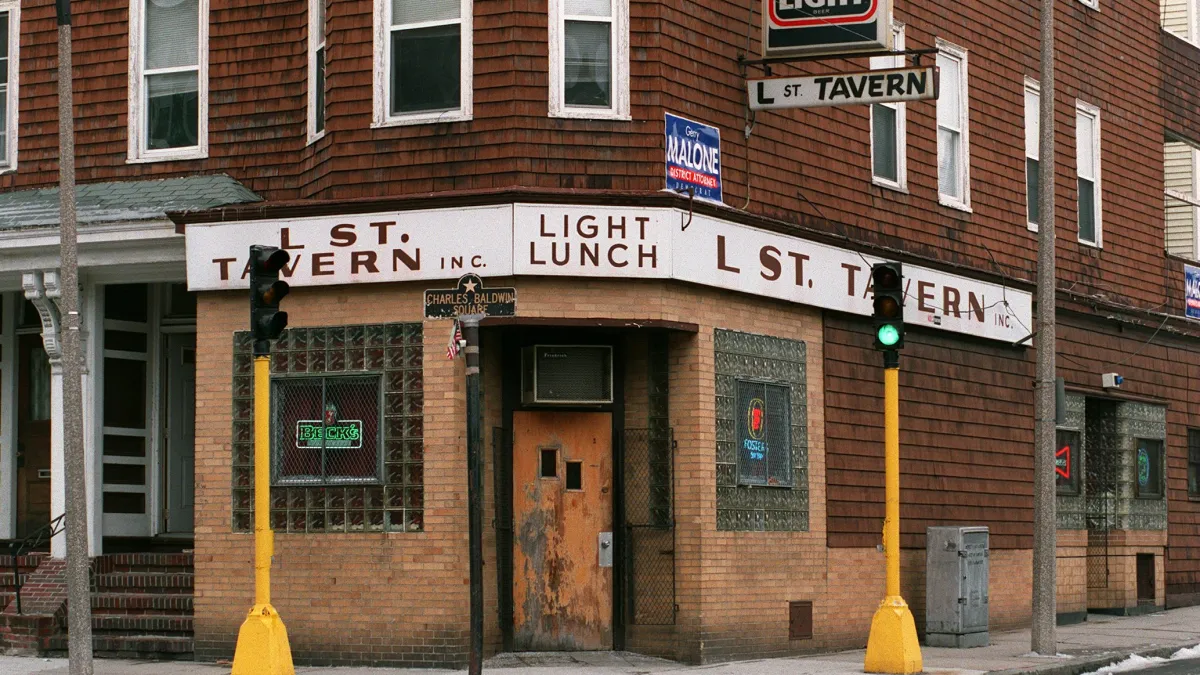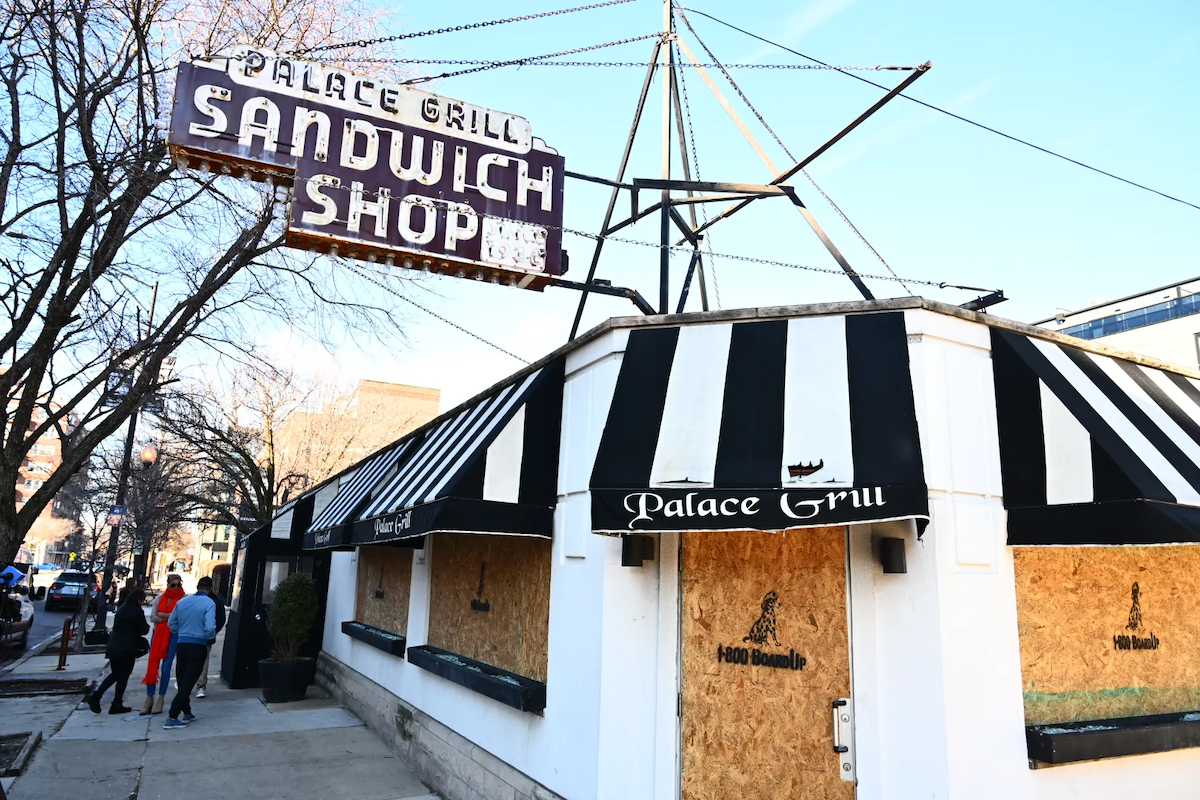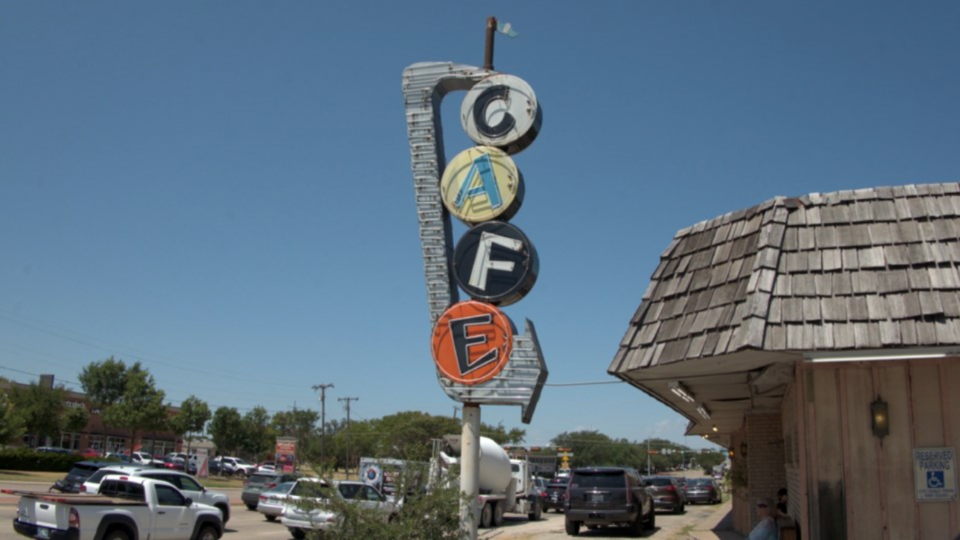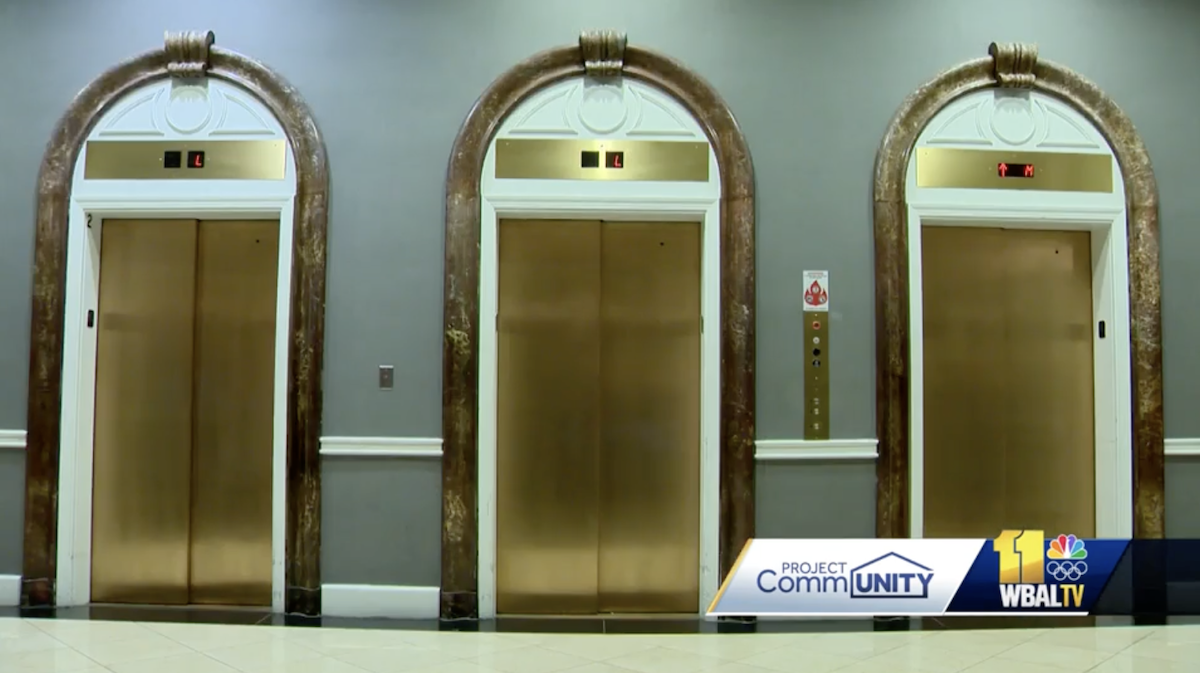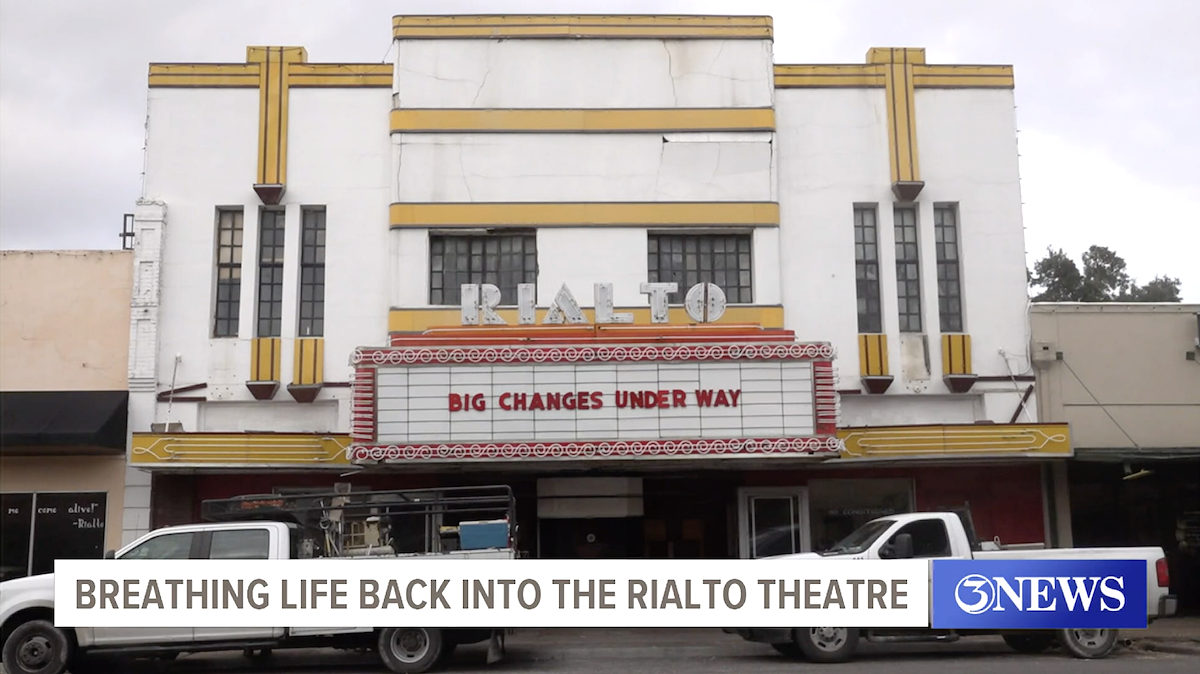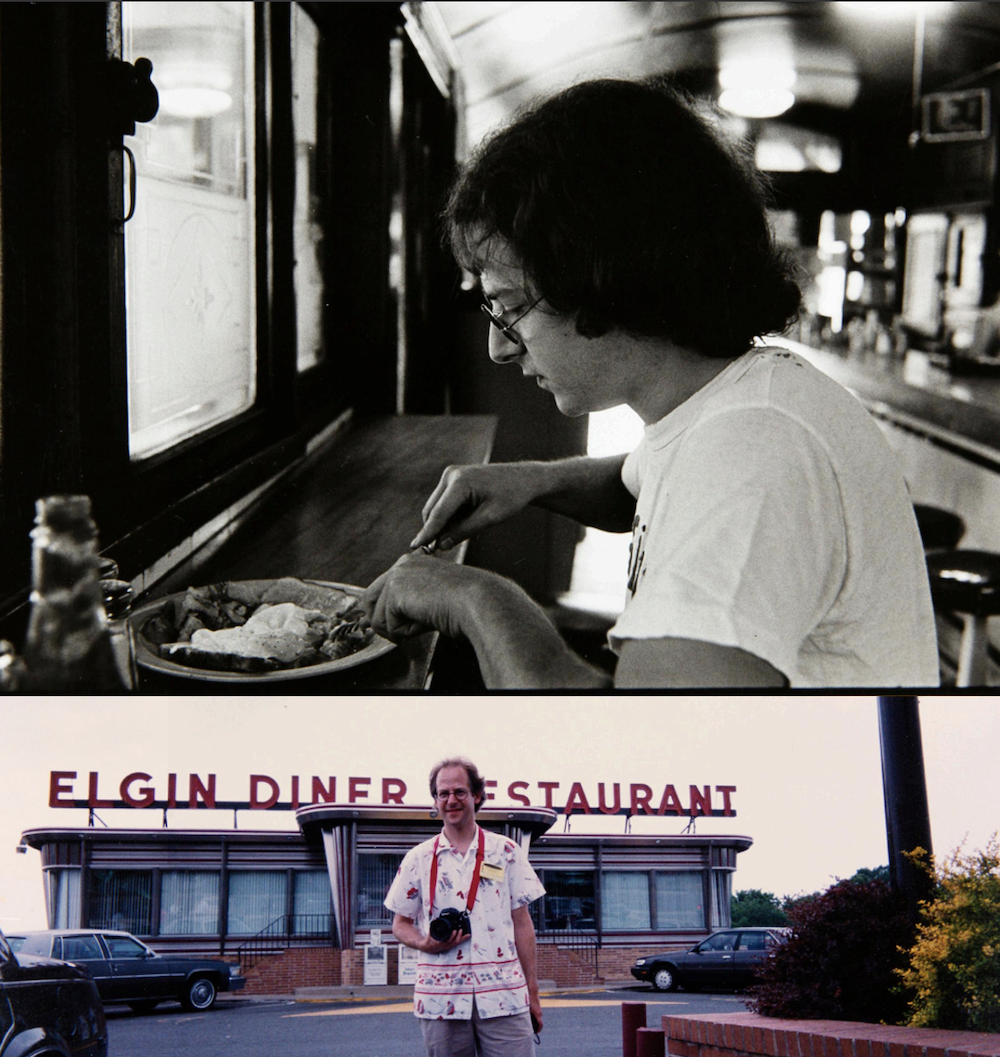Preserving Black History: Pueblo preserves 1940s era motel while a museum searches for a new home
Photo by: KMGH photojournalist Adam Hillberry
From denver7.com: Pueblo, Colo. – Inside the Coronado Motel, a Pueblo, Colorado 1940s-era building, sits a piece of 1983 Hollywood nostalgia, a National Lampoon’s Vacation poster.
“I mean, people locally more know it for the fact that it was a National Lampoon’s Vacation, it was filmed here,” Joe Koncilja, a local real estate developer and the current property owner said.
But The Coronado Motel, also known as Coronado Lodge is also significant to history for welcoming Black traveler’s during the first half the 20th century, when segregation laws prevented Black Americans from staying at many of the hotels and motels in Colorado’s big cities.
L Street Tavern, South Boston bar featured in ‘Good Will Hunting,’ being sold
The L Street Tavern in South Boston. Photo by John Tlumacki/The Boston Globe via Getty Images
From nbcboston.com: L Street Tavern, the South Boston bar featured in the Matt Damon and Ben Affleck film “Good Will Hunting,” is being sold to a new ownership group.
Owners Jack and Susan Woods announced on social media Friday that they will be selling the tavern next month.
Palace Grill Owner Vows To Rebuild After Restaurant Suffers ‘Extensive’ Fire Damage
The Palace Grill is boarded up Feb. 9, 2024 after a fire damaged the famed West Loop restaurant. Credit: Colin Boyle/Block Club Chicago
From Block Club Chicago: CHICAGO — The famed Palace Grill was heavily damaged by a fire Thursday night.
Firefighters responded to the fire about 10 p.m. and were able to put out the blaze, but there was “extensive” damage to the restaurant, 1408 W. Madison St., according to the Fire Department. No one was injured.
The restaurant is closed for the time being. Photos showed damage to the roof, a heavily charred interior and destroyed windows.
Bill Smith’s Cafe Reopens In Van Alstyne, Texas
Photo: Shoko Ashcraft | Local Profile
From Local Profile: Bill Smith’s Cafe left McKinney in 2022, but the historic restaurant reopened in the town of Van Alstyne.
Initially scheduled to reopen in fall 2023, Bill Smith’s Cafe opened this week with a line out the door. According to The Dallas Morning News, when Bill Smith opened at 5 a.m., about 30 people were waiting to be served. By 6 a.m., the restaurant was packed.
Before its permanent closure, Local Profile visited Bill Smith’s in McKinney. Established in 1956, the restaurant delighted patrons with country classics and breakfast staples. Adorned with a county plaque at its entrance, the cafe proudly claimed the title of Collin County’s oldest family-owned eatery. Its longstanding legacy was a testament to its enduring significance in the community.
Historic Lord Baltimore Hotel shares Civil Rights battle for Black History Month
From WBAL TV: BALTIMORE — A historic landmark in the heart of downtown welcomes guests to Charm City.
Beyond the ornate details, hidden in the fabric of The Lord Baltimore Hotel is a story of defiance.
The gold doors of the Lord Baltimore Hotel were the first desegregated doors to open for guests of color in the city. The effort was pioneered by a bold stance taken by the hotel just over 60 years ago.
Historic Rialto Theatre renovations taking shape
From kiiitv.com: BEEVILLE, Texas — The Hall-Rialto Preservation Association is at the center of efforts to preserve the iconic Beeville theater’s history.
According to Mark Parsons, the association’s president, it is thanks to community donations that the organization has raised enough money to buy new chairs from Missouri.
“These are the great chairs that we received out of Branson, Missouri,” Parsons said. “A couple of our board members actually flew there and hand-selected the chairs because it had quite a few more in the auditorium. So, we have about 360 chairs in the auditorium and we still have some extras that we can put up in the balcony.”
Dishing On Diners: The world’s expert on diners shares his start, describes his discoveries and explains his connection to The Henry Ford
Richard Gutman sampling poached eggs at the Kitchenette Diner (top) in Cambridge, Massachusetts, circa 1974 and visiting the Elgin Diner Restaurant in Camden, New Jersey, in 1993. Top photo by John Baeder. Bottom photo From The Henry Ford Archive Of American Innovation
From The Henry Ford Magazine: By Richard J.S. Gutman. It was 1970, and I was on a break with classmates from an all-nighter at Cornell University’s School of Architecture. Seeking sustenance, I substituted a swiveling stool at the counter for an equally uncomfortable drafting stool up on the Arts Quad.
An authentic diner — a long, low structure built in a factory and hauled to a site equipped with cooking equipment, dishes and silverware — is a particular type of informal lunch counter restaurant, which in its heyday during the 20th century frequently appeared to be like an immobile railroad car, but a resemblance was the only connection to a train.
Diners had been one of my family’s go-to restaurant options in the 1950s and ‘60s in Allentown, Pennsylvania. There were four within walking distance of our house near the town’s fairgrounds and 22 in and around the All- American City of 100,000 at the time.


